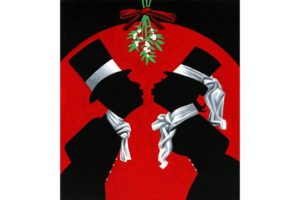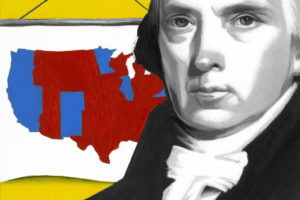
ILLUSTRATION: JON KRAUSE
Lessons in heroism and horror as a famed flu pandemic hits a milestone
A century ago this week, an army cook named Albert Gitchell at Fort Riley, Kansas, paid a visit to the camp infirmary, complaining of a severe cold. It’s now thought that he was America’s patient zero in the Spanish Flu pandemic of 1918.
The disease killed more than 40 million people world-wide, including 675,000 Americans. In this case, as in so many others throughout history, the pace of the pandemic’s deadly progress depended on the actions of public officials.
Spain had allowed unrestricted reporting about the flu, so people mistakenly believed it originated there. Other countries, including the U.S., squandered thousands of lives by suppressing news and delaying health measures. Chicago kept its schools open, citing a state commission that had declared the epidemic at a “standstill,” while the city’s public health commissioner said, “It is our duty to keep the people from fear. Worry kills more people than the epidemic.”
Worry had indeed sown chaos, misery and violence in many previous outbreaks, such as the Black Plague. The disease, probably caused by bacteria-infected fleas living on rodents, swept through Asia and Europe during the 1340s, killing up to a quarter of the world’s population. In Europe, where over 50 million died, a search for scapegoats led to widespread pogroms against Jews. In 1349, the city of Strasbourg in France, already somewhat affected by the plague, put to death hundreds of Jews and expelled the rest.
But not all authorities lost their heads at the first sign of contagion. Pope Clement VI (1291-1352), one of a series of popes who ruled from the southern French city of Avignon, declared that the Jews had not caused the plague and issued two papal bulls against their persecution.
In Italy, Venetian authorities took the practical approach: They didn’t allow ships from infected ports to dock and subjected all travelers to a period of isolation. The term quarantine comes from the Italian quaranta giorni, meaning “40 days”—the official length of time until the Venetians granted foreign ships the right of entry.
Less exalted rulers could also show prudence and compassion in the face of a pandemic. After the Black Plague struck the village of Eyam in England, the vicar William Mompesson persuaded its several hundred inhabitants not to flee, to prevent the disease from spreading to other villages. The biggest landowner in the county, the earl of Devonshire, ensured a regular supply of food and necessities to the stricken community. Some 260 villagers died during their self-imposed quarantine, but their decision likely saved thousands of lives.
The response to more recent pandemics has not always met that same high standard. When viral severe acute respiratory syndrome (SARS) began in China in November 2002, the government’s refusal to acknowledge the outbreak allowed the disease to spread to Hong Kong, a hub for the West and much of Asia, thus creating a world problem. On a more hopeful note, when Ebola was spreading uncontrollably through West Africa in 2014, the Ugandans leapt into action, saturating their media with warnings and enabling quick reporting of suspected cases, and successfully contained their outbreak.
Pandemics always create a sense of crisis. History shows that public leadership is the most powerful weapon in keeping them from becoming full-blown tragedies.












